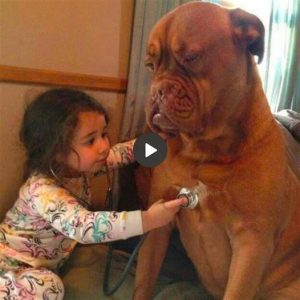On a sweltering night in June, dozens of people with their dogs gathered at an entertainment hub in the capital city of Washington, kicking off a weekly mouse-hunting excursion.
“Well done, Henry!” Marshall Feinberg, a 28-year-old dog trainer, loudly praised as his lead dog successfully took down the first mouse.
Barks, growls, and the squeaks of mice echoed through the mouse-hunting expedition in Adams Morgan, a nighttime entertainment district in the U.S. capital.

The rodents scurried through alleyways behind restaurants, bars, and clubs, scavenging through trash bins. Washington consistently ranks among the top 5 cities with high mouse populations in the U.S. The mouse issue has exacerbated due to warmer winters, population growth, and outdoor dining areas opening up post-Covid.
In 2022, the city logged 13,400 calls to the hotline reporting mice, marking an increase of about 2,000 calls from the previous year. Citizens have now joined the fight against the mice.
Amidst the stench of garbage and urine in the air, the mouse-hunting brigade marched forward. Dachshunds, terriers, and greyhounds sniffed through trash cans, chasing the nibbling creatures.
The owners come from diverse backgrounds—some from the city, others from the suburbs, and some connecting via social media due to their shared passion for mouse hunting.
Bomani Mtume, a 60-year-old retired police officer, has been taking his terrier, Barto, on these hunts since March when the campaign kicked off.
“The first time we went out, the mice didn’t even bother to run. They froze, staring at the dogs,” he said. “Even unfamiliar dogs started working together. It’s incredible.”
Teddy Moritz, 75, nicknamed “Grim Granny,” is a revered figure in the community. She invited her son and grandson from Delaware to Washington for this endeavor.
“Using dogs for mouse hunting is a natural and effective method,” she explained. Poison takes days to work on mice, while dogs catch them swiftly. “It’s primitive but effective.”
Quick and agile, Moritz kicked bins to flush out hiding mice. With her expertise in breeding and training sausage dogs, she’s now adapted them to hunt mice, having previously trained them for rabbit hunting.
In three hours, they eliminated over 30 mice. “This is a great example of teamwork. Dogs and people working together to manage the mouse population for the city,” Feinberg stated.
Bobby Corrigan, a rodentologist, admits there’s limited scientific data confirming the efficacy of mouse hunting. However, the practice has been around for centuries, with dogs trained for farm mouse control. “Using dogs as a tool for mouse control is gaining popularity again,” he said, emphasizing the increasing demand for buying and selling trained dogs.
Additionally, poisoning mice has proven harmful to species like hawks and owls, and traps take time. Mouse hunting becomes a more humane choice. “Dogs snap mouse spines so quickly that they don’t have time to feel anything,” Moritz added.
Apart from dogs, cats are also used for mouse hunting, being natural enemies of rodents. Lisa LaFontaine, president of the Humane Rescue Alliance, initiated the “Working Cats” program for the city’s feral cat population in 2017, connecting 400 cats with businesses.
“We created this program to provide these cats with a life they’re used to, but with the added benefit of necessary vaccinations,” she explained.
In the town of Alexandria, Virginia, a 20-minute drive from Washington, Rue the cat has been deterring mice that often gnaw on bird feed and fertilizer bags at Greenstreet Growers, a plant shop.
<“He only catches a few, but the primary effect is instilling fear in the mice,” Tim Williams, the shop manager, explained. He estimated a 10% decrease in damages thanks to Rue.
Rue is a celebrated employee with a significant following on Instagram. “Having a cat here serves a dual purpose. Everyone loves to admire Rue,” Williams added.





